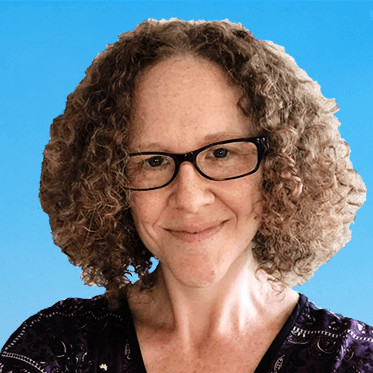
Published
How to pick a realtor when selling | Interview questions | What makes a good seller’s agent? | FAQ
In today’s market, not just any agent will do
Choosing the right realtor is particularly important in the post-pandemic housing market, where buyers’ and sellers’ expectations are often at odds.
Many homeowners believe they can still sell their house with minimal effort. But fewer buyers are entering the market because of elevated interest rates. And when they do, they’re demanding more for their money. This means sellers don’t have as much leverage as they used to.
To get the most value out of your home sale, choose an agent who has the experience to navigate the current market. Make sure you interview multiple agents to compare their pricing and marketing strategies.
To find the best agents in your area, you can use our agent finding tool. We pre-screen agents based on their experience, local sales performance, customer ratings, and more. We also pre-negotiate 1.5% listing fees with all our agents — half the typical 3%.
💰 Save time and money: Find the right listing agent to sell your home. Get a low 1.5% listing fee.
How to choose a realtor when selling
1. Think about what you need and want in a realtor
Before you start searching for real estate agents, consider what factors are most important to you and what would make the selling process easier for you.
Ask yourself these kinds of questions:
- What communication style do I prefer?
- Would I rather work with an independent agent or a larger team?
- What do I need my agent’s availability to look like?
- Do I need a realtor with specialized expertise, like moves for people in the military, getting a divorce, or retiring?
2. Find agents to compare
You can find agents by:
- Using an agent matching service
- Asking friends and family for referrals
- Searching online for realtors in your area
Working with an agent matching service is usually the most effective and efficient method.
» LEARN: The best way to find a real estate agent
Family and friends can offer referrals, but the agents they worked with might not have the experience your sale requires. Plus, it can be complicated firing someone a friend recommended, if it comes to that.
Conducting your own online search can get you lots of names quickly, but vetting the agents yourself can be frustrating and time-consuming.
Reputable agent matching services vet realtors for you. With our service, you get a list of top local agents, all hand picked based on your needs. You also get built-in commission savings.
3. Research agents online
Once you have a list of options, research the agents online to narrow your options. Check out their website, social media accounts, and customer reviews.
Verify that they have an active real estate license, and check for any disciplinary actions through your state real estate commission (which you can find with a quick Google search).
During your research, evaluate each agent’s:
- Recent sales data and history. Make sure the agent has sales in your local market. Also consider the average days the recent listings were on the market.
- Recent online reviews. Be wary if there’s a pattern of negative reviews. Read about what it’s like working with them. Pay extra attention to recent reviews, which reflect how they work in the current market.
- Level of experience. We recommend choosing a seller’s agent with at least three years of full-time experience and a minimum of 12 transactions per year.
4. Interview multiple agents
Interview at least three agents before making your final decision. An initial interview with a listing agent often takes place in your home.
Be prepared for the agent to ask you about:
- Your ideal timeline
- Your mortgage
- Any upgrades you’ve made
- The pre-listing inspection, if you’ve done one
- Property details
- Your expectations
- Any special circumstances
You’ll also want to prepare your own set of questions.
Questions to ask a realtor when selling
💡 About their experience and work style:
- How many homes have you sold in my neighborhood and price range?
- What’s the average time it took the homes to sell?
- How much communication can I expect, and who will be my main point of contact?
- What is your commission rate?
📈 About the housing market:
- What are other homes selling for in my neighborhood?
- How quickly are homes like mine selling?
- What are prospective buyers looking for right now?
- What kinds of offer terms or concessions should I expect from buyers?
- What’s your selling strategy in the current market?
🏡 About your home:
- What is my home worth? How did you come to that answer?
- What home repairs or updates do you recommend?
- How will you market my home to buyers?
After interviewing several agents, choose the agent whose plan you feel the best about and who you trust the most.
5. Review and sign the listing agreement
Once you choose your agent, you’ll sign a listing agreement. This contract authorizes the realtor to sell your home. Carefully review the contract, and have the agent explain each section.
Common information in a listing agreement includes:
- Type of agreement (e.g., exclusive, open, or agency agreement)
- Length of the agreement
- The agent’s responsibilities
- Your responsibilities
- Which MLS your home will be listed on
- How to resolve any disputes over the contract, including how to terminate the contract
- The listing fee
Before signing, look for red flags, like a lengthy contract term with no way to cancel the contract. Be wary if your realtor tries to rush when explaining the contract or gives vague answers to your questions.
Also remember that you can negotiate the real estate commission. If you don’t want to negotiate yourself, you can use our agent matching service. We do the negotiating for you.
What makes a good seller’s agent?
Good listing agents have qualities that make them successful at selling homes efficiently and for top dollar. Here are key traits to look for.
1. They’re up front about their process and fees
Your realtor should be able to clearly explain their home selling process, including:
- Their commission rate
- The specific services they provide
- Their recommended marketing and negotiation strategies
- An estimated timeline for getting your home listed and sold
2. They understand your local market
A good seller’s agent can easily tell you:
- How much homes are selling for in your neighborhood
- How long properties are staying on the market
- What buyers are demanding in terms of contingencies and concessions
- How much leverage sellers have compared to buyers
- What your home is worth relative to comparable homes in the neighborhood
They’ll know what your home will realistically sell for in the current market. And they can back up their suggested listing price with data.
3. They have relevant experience
You want an agent who has recently sold homes in your area and price range. And if you have an unusual situation, like a pending foreclosure or an inherited property, you want a listing agent who has the skills to help with that specific circumstance.
4. Their communication style fits yours
You want to find a real estate agent whose communication style fits well with yours, since you’ll be working closely with them throughout the home selling process.
An agent with a good communication style will:
- Clearly explain complex real estate information
- Use your preferred method of communication (phone, email, or text)
- Respond within 24 hours
- Listen attentively
- Provide clear answers to your questions
- Make you feel comfortable
5. They have a marketing plan designed for your situation
A good real estate agent will personalize a marketing strategy for your home. The marketing plan should include:
- An explanation of why they think the plan will work for your property
- Where they’ll list your property
- An open house strategy, including frequency and staging
- How they’ll incorporate social media or other technology, like virtual showings, 360-degree tours, and video calls
6. They have a reliable network of professionals
A good seller’s agent can recommend reliable professionals to help sell your home, including home repair workers, real estate photographers, home stagers, and cleaners.
FAQ about how to choose a listing agent
Why choose one real estate agent over another?
Choosing one experienced realtor over another comes down to your preferences and comfort level. When making your final decision, look for an agent who has experience in your local market, has recent sales, can communicate clearly, and is someone you feel comfortable working with closely.
How do you interview a realtor when selling a house?
You can call or email a seller’s agent to arrange an in-person or video appointment. Before the interview, prepare a list of questions. Ask them about their home selling process, local market knowledge, and sales history. Also ask for recent references.
When should you contact a real estate agent?
Start looking for a listing agent as soon as you’ve decided to sell your home. This gives you time to research and interview multiple agents so you can find the right fit. Plus, the realtor can help you navigate the preparation phase of selling your home.
How much do I pay my realtor for selling my house?
How much you pay your realtor will be detailed in your listing agreement. Traditional agents often charge a 3% commission on the home’s sale price. But many qualified, full-service agents will sell your home for a 2% commission or less. Learn more about realtor fees.
Should you search for a realtor or real estate agent?
Both realtors and real estate agents are licensed and qualified to help buy and sell homes. The difference is that realtors are also members of the National Association of Realtors (NAR) and bound by the NAR Code of Ethics. Ultimately what matters is the quality of the individual agent.
What does a seller’s agent do?
A seller’s agent, or listing agent, helps a seller list and market their home. This process includes setting a list price, developing a marketing strategy, hosting open houses, and negotiating with buyers. Learn more about what a listing agent does.
Related reading
How to Find a Real Estate Agent: Discover the top ways to start your search for a local real estate agent, and learn what to watch out for along the way.
Should I Sell My House Now? The decision to sell your house now or wait is a big one. And sellers right now face some unique challenges. Here’s how to decide.
What Does a Real Estate Agent REALLY Do? Learn about the key responsibilities for both seller’s and buyer’s agents.
Realtor Fees: Who Pays the Commission and How Much Is It? This guide explains what you’ll pay (and how to get discounts) when working with a realtor.
Why you should trust us
Real Estate Witch’s mission is to provide accurate, actionable, and practical information you can use to make better decisions on your real estate journey.
To create this guide, we interviewed realtors, real estate investors, and experienced home sellers to find out how to choose the best real estate agent.


Leave a Reply